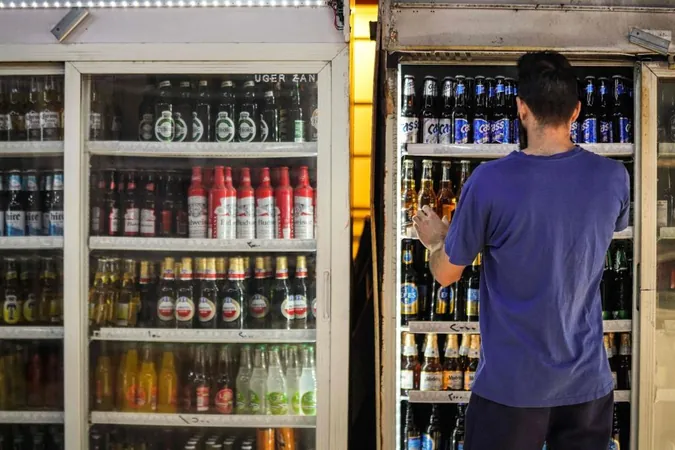
New Study Reveals Shocking Link Between Alcohol and Six Types of Cancer: Are You at Risk?
2024-09-28
New Study Reveals Shocking Link Between Alcohol and Six Types of Cancer: Are You at Risk?
For years, it's been an accepted truth: alcohol consumption carries risks that outweigh any perceived benefits. Now, new research amplifies concerns as it shows that over 5% of all cancer cases in the U.S. can be attributed to drinking alcohol, according to the latest Cancer Progress Report 2024 from the American Association for Cancer Research (AACR).
Alcohol ranks as the third largest modifiable risk factor for cancer after obesity (7.6% of cases) and smoking (19.3% of cases). “Excessive alcohol consumption increases the risk of six different types of cancer: head and neck cancers, esophageal squamous cell carcinoma, as well as breast, colorectal, liver, and stomach cancers,” says Rajarshi Sengupta, PhD, the lead author of the report.
What's more alarming is the emerging evidence linking early alcohol consumption to increased cancer risk later in life. The report highlights that reducing or even eliminating alcohol intake can decrease the risk of alcohol-related cancers by up to 8% and overall cancer risk by 4%.
Addiction Expert Weighs in on Alcohol Risks
Dr. Adam Scioli, an addiction psychiatrist at Caron Treatment Centers in Pennsylvania, points out the inconsistencies in public perception regarding alcohol's health effects. “There’s been a roller coaster of information about alcohol, with some claiming it offers health benefits. But we now recognize alcohol as a significant modifiable risk factor for cancer,” he explains.
Scioli further notes that about 75,000 Americans each year are diagnosed with cancers linked to alcohol use. The correlation is clear: the more one drinks—both in volume and frequency—the higher the risk.
“Alcohol is a toxin,” he stresses. “It affects various organs, starting with the brain and extending all the way through the gastrointestinal tract.”
Is There Such a Thing as Safe Drinking?
The Centers for Disease Control and Prevention (CDC) defines moderate alcohol consumption as one drink or less per day for women and two or fewer for men. However, recent findings suggest that even low levels of alcohol—less than one drink a day—can elevate the risk of certain cancers. Scioli emphasizes that there are no significant health benefits linked to drinking alcohol.
“Determining a 'safe' level of alcohol is inherently individual and subject to debate,” he states. Alarmingly, more than half of Americans (51%) are still unaware of alcohol’s role in elevating cancer risk, despite the rising concern.
What Needs to Change?
The report posits that reducing alcohol consumption can significantly decrease the risk of cancer, offering a glimmer of hope. Individuals who successfully cut back or quit drinking can expect a marked reduction in their overall cancer risk.
“We really need to enhance public awareness about the dangers of both moderate and heavy drinking,” urges Scioli. He advocates for widespread educational campaigns to inform the public about the repercussions of excessive alcohol use and to promote accessible resources for those struggling with alcohol dependence.
To bolster these efforts, Sengupta calls for initiatives like cancer-specific warning labels on alcoholic beverages and comprehensive clinical strategies to help individuals reduce or eliminate their alcohol consumption.
As research continues to unravel the dangers of alcohol, the time to act is now. Are you taking the necessary steps to protect your health? The choice is in your hands.


 Brasil (PT)
Brasil (PT)
 Canada (EN)
Canada (EN)
 Chile (ES)
Chile (ES)
 España (ES)
España (ES)
 France (FR)
France (FR)
 Hong Kong (EN)
Hong Kong (EN)
 Italia (IT)
Italia (IT)
 日本 (JA)
日本 (JA)
 Magyarország (HU)
Magyarország (HU)
 Norge (NO)
Norge (NO)
 Polska (PL)
Polska (PL)
 Schweiz (DE)
Schweiz (DE)
 Singapore (EN)
Singapore (EN)
 Sverige (SV)
Sverige (SV)
 Suomi (FI)
Suomi (FI)
 Türkiye (TR)
Türkiye (TR)